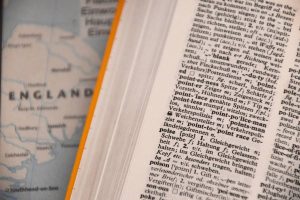It is important to ask yourself “why”. This will determine how much, how long and how consistently you study.
Some of the most powerful personal motivations are intrinsic factors such as travel desire, family, love and personal development.
How do our government’s and economies decisions influence these motivations personally? What can be done to change the attitude towards language learning?
Brexit is a rare opportunity for us to see a significant and large-scale change in a government, its economy and how people live as global citizens.
After comparing 9 months’ worth of data (August 2016 to April 2017), we found that the British appetite for learning languages grew despite Brexit. Lingvist’s data shows that UK users have increased by 91% since Brexit. Average user completed 574 learning cards, learned 30 new words per day, and spends 18 minutes learning every day.
The data shows that our English-French language course saw a 12 percent increase of learners after Brexit. French, Spanish and German were the top three most-popular languages from English.
The data revealed that British students have difficulty with certain words in different languages. Words that are similar to English words (also called cognates), such as the Spanish gobierno which is similar to the English government, can be particularly difficult.
The hardest words to learn for British students
French
time – The English translation can lead learners in the wrong direction. Time refers to a sentence that begins with It was once….
avis – English speakers may find it difficult to comprehend why French people need another word for the same meaning when they have an opinion. It’s used to express a “point of view”.
falloir can be tricky! This is a way of saying that something must be done. It’s easy to confuse it with devoir, which means’must.’
German
gleiche (same) – Three aspects come into play here. It is important to correctly decline the word, which in this instance only needs an ‘e’ (not a -es, -en, or an ei). It’s also very different than the English word it is based on.
Jahr – It sounds the same as Ja (yes), but has two extra letters. Students may want to use ‘Yahr,’ ‘Jano or even ‘Yahr.’
Platz Even native German speakers make mistakes when writing -tz, -tzt, or –zt. Students can also write “place” or “plaza”, or even English, Spanish or both.
Spanish
Gobierno
algun – This shortened version of alguno can be confusing to English speakers, as it’s either’some or any’ depending on whether or not the sentence is being read as a statement.
Sois – This is the second person plural of the present indicative Ser. To be translates to two Spanish verbs, ser or Estar. se as well as estar each have different meanings and conjugations. The form “you are” has eight different translations.
These words can be a challenge for British English speakers who want to learn French or German — but not barriers. Hanna-Leana, our Chief Linguistic officer has this message for all language learners:
The majority of challenges that we encounter when learning a new language are not inherent to the language itself, but rather within ourselves. It isn’t difficult to learn new words, but it is more challenging to maintain consistency and perseverance. Language learning is not a talent that comes naturally to anyone. Anyone can learn a language if they are determined.
How can you be patient, persistent, and consistent in your language-learning? Look at our advice for building a habit of language


+ There are no comments
Add yours